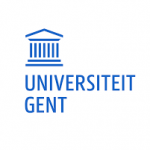CompaRe: Smart and Lean Integration: Finding Regional Solutions to Global Challenges
About the conference
“Smart and lean integration: finding regional solutions to global challenges”
Our world is facing unprecedented challenges which demand a joint response. Climate change cannot be solved by any country alone, no matter how strategically autonomous it is. Migration is a global phenomenon, which cares little about sovereignty. And a modern (digital) economy is inherently interconnected. Even if dependence on some global value chains might be reduced, full autarky is therefore a myth, certainly if climate goals are to be actually realized, standards of living are to be retained, and some form of market mechanism is to remain.
To make matters worse, these shared challenges have to be addressed in a rapidly renationalizing world. Multilateral institutions like the UN and the WTO are struggling, torn by the economic and geo-political strive that accompanies the shift to a multipolar global order. Major powers are racing to protect their own strategic autonomy, leading to nationalistic agenda’s that threaten effective and efficient collaboration. Instead of more global collaboration, we may be headed for more fragmentation and conflict.
Regional integration may be one tool to help solve this conundrum. To begin with, regions may be large enough to effectively tackle some of the major challenges, but small and coherent enough to enable effective collaboration. In addition, for all but the largest nations, regional integration might offer the safety and collective clout countries need to defend their interests in a renationalizing and less stable multipolar reality where major powers are primarily pursuing their own interest. And though it faces some of the same challenges as multilateral collaboration, including nationalistic reflexes, regional collaboration may be more realistically and quickly achieved than global collaboration. This is vital considering the clock is ticking on key challenges such as climate change. Regional integration may, therefore, help ensure sufficient collaboration, and at a sufficient level, especially where regions manage to collaborate between themselves as well.
For regional integration to play this role, however, we need to find better ways for countries to collaborate than the mechanisms that exist today. Ways that better fit the very different challenges and realities in Africa, Asia, Latin-America, the Middle East, and Europe. This also means finding alternatives to the EU model. For even though the EU remains the most advanced form of regional integration so far, and offers vital successes and failures for other regions to learn from, its approach simply cannot be copy-pasted to other regions. This is already the case because of the high legal and sovereignty ‘overhead’ of the EU model, which is too high for many other regions to bear. But it is equally imperative in light of the fundamental differences between regions and their constituent states, and the subsequent need to respect the voice, knowledge and culture of all relevant actors, including non-governmental ones, and to avoid the pitfall of imposing European constructs.
For these reasons, this conference explores the potential of regional collaboration for meeting some of the key challenges facing our world today, and to do say in a smarter and leaner way than ‘just’ copying the EU model. It does so in the context of CompaRe, the Leiden Jean Monnet Centre of Excellence on comparative regional integration, and in collaboration with UNU-CRIS, the United Nations University Institute on Comparative Regional Integration Studies.
Substantively, the conference focusses on three core challenges: climate change, migration and economic collaboration in a digital, renationalizing reality. In addition, it focusses on two key underlying academic challenge: the methodology of comparative legal integration and the challenges raised by overlap between regional initiatives.
Upcoming Events
Similar Events
No events found.




